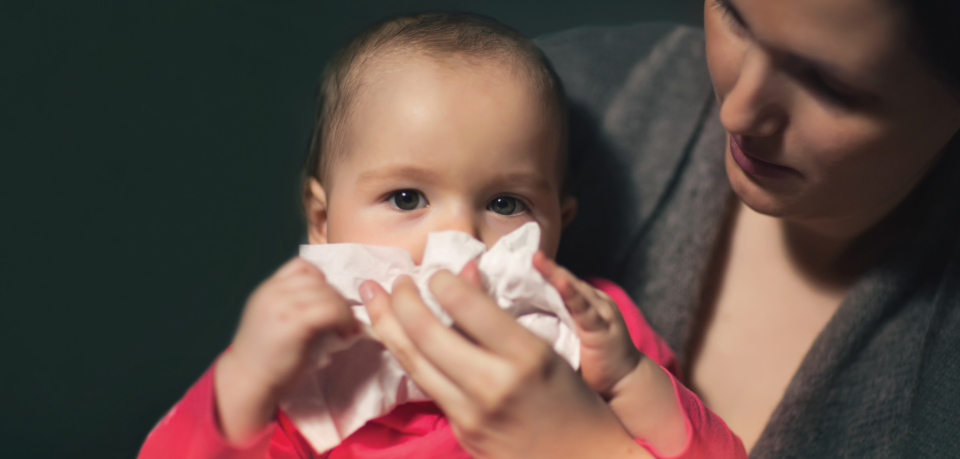Tis the season for viruses, and pinpointing what is what can be tough. It seems like the coughing and runny nose is ongoing, and when it comes to respiratory syncytial virus, or RSV, it’s nothing to ignore. RSV is a respiratory infection that can lead to an upper respiratory tract infection (cold symptoms) or lower respiratory tract infection (bronchiolitis and pneumonia with cough, wheezing, low oxygen levels as well as apnea), and infants are more susceptible to it.
It’s why the Centers for Disease Control and Prevention now recommends that infants get the new antibody treatment called Beyfortus with a monoclonal antibody, different from the RSV booster for adults. According to John LaCount, pediatrician at St. Elizabeth Physicians, RSV can lead to significant respiratory illnesses in infants and older adults. With RSV season extending from October to May, peaking in January and February, is the treatment necessary?
“It (RSV antibody treatment) is a monoclonal antibody that can provide a protective headstart to prevent the most serious infections,” he explains. “This means the body can recognize the virus and move forward with resolving the symptoms before the serious symptoms occur,” says LaCount.
Although studies show the treatment to be highly effective, it does not mean kids won’t get any other colds. So, it may be worth it to ask your pediatrician.
PROTECTING YOUR INFANT
Some infants are more susceptible to RSV than others. According to Thomas Lamarre, infectious disease specialist at The Christ Hospital Health Network, babies who are at higher risk include infants under 6 months old (particularly preemies born during the first half of the RSV season); ones who attend daycare; those with older siblings (who may have asymptomatic RSV infection); those who have underlying lung disease or congenital heart disease; and those who are exposed to secondhand smoke. For kids younger than 2, they are more susceptible to URI symptoms. There are plenty of ways you can protect your babies from RSV this season, according to LaCount.
“Avoiding locations where RSV rapidly spreads such as daycare or school are recommended,” he says. “Prevention of the illness in grandparents by assuring they receive vaccinations is appropriate.”
In addition, covering your cough around baby and caring for your older kids right away if they get the virus.
“We encourage parents and schools to be aware and encourage children to stay home until their symptoms abate,” LaCount continues.
YOUR LITTLE POWERHOUSE
As far as babies go, it’s good to know that you have a little powerhouse on your hands. In fact, after the first two months of life, your baby’s immune system begins to skyrocket.
“Infants develop the ability to respond to an array of infections in the first year of life,” says Lamarre. “Serum antibody (called bmIgG) levels in childhood increase dramatically within the first two months of life with a gradual increase over the first year of life.”
In addition, antibodies produced by Mom while Baby was in the womb also play a role in protecting babies for quite some time after birth (largely clearing from the baby’s circulation by 6 months of age).” If you are concerned about whether your baby might have RSV (runny nose, sneezing, conjunctivitis, irritability, poor feeding / not eating or drinking well and / or fever) contact your pediatrician right away. For the first time, there’s a universal recommendation to give passive immunity to all infants.
These are recommendations:
For Healthy Infants:
- Born during RSV season or younger than 8 months when RSV season begins.
- If a dose is not received during Baby’s first RSV season or younger than 8 months old entering their second RSV season.
For Infants at Risk for Severe RSV
- Infants born during RSV season or upon entering their first RSV season.
- Babies younger than 19 months when entering their second RSV season.





